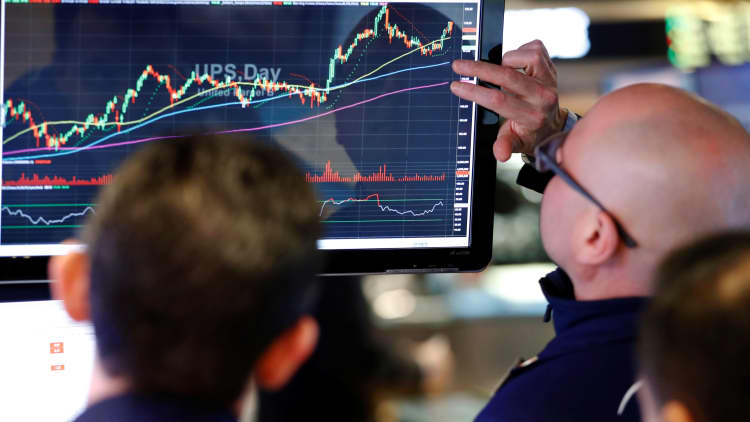
President Donald Trump's firing of the FBI director and other developments could motivate Republicans to speed up tax reform to preserve their majority in the House of Representatives, according to Strategas Research.
Trump's abrupt dismissal of FBI Director James Comey on Tuesday drew a firestorm of criticism from Democrats and some Republicans, concerned it appears to be an effort to thwart the FBI investigation into the Trump campaign's alleged ties to Russia. U.S. Attorney General Jeff Sessions and his deputy said they recommended that Comey
The action was not seen as so much a market-moving event, but as another hurdle to tax reform, with Washington more divided than ever and sidetracked by a new politically charged controversy.
"While distractions from investigations could hinder policy developments, our sense is that Republican members of Congress will want to speed up their policy achievements to overcome recent political developments," writes Dan Clifton, head of policy research at Strategas.
This may explain the indifferent reaction to the Comey news by the stock market Wednesday. About midway through the trading day, the was basically unchanged.
House Speaker Paul Ryan was scheduled to appear in Ohio on Wednesday to tout tax reform.
Clifton said he expects Congress to complete tax reform in the first quarter of next year, not in 2017 as previously expected. The process has been slowed down by the fact that the Senate will come up with its own health-care plan, and the House will have to agree after it barely approved its own plan last week.
Tax reform has been the most important Trump policy for the stock market since he won the election. While the market has risen to record highs, stocks most likely to gain from Trump's policy have been losing the Trump premium, built in right after the was elected.
Now the president could be embroiled in a new fight that may be a negative for him, hurting his approval rating. Gallup put Trump's approval rating at 40 percent, as of Monday.
"Democratic talk of impeachment increased significantly last night. The narrative is not going away and will continue to hamper the lightly staffed Administration. This will also make bi-partisan compromise more difficult in the coming months, and the debt ceiling remains our No. 1 policy concern. From a policy perspective, does this in fact force Republicans to get their act in gear and actually get tax and healthcare reform?" Clifton notes.
Clifton said so far the Comey termination is not a market event, but he is watching to see if it begins to seep into economic confidence indicators. A drop in confidence could impact markets.
"Passage of the Trump agenda, most notably with tax reform should help keep confidence elevated, but any undermining of confidence from political developments and/or the inability to enact the agenda could move the needle in the opposite direction," according to Clifton.
The strategist is also watching special elections and the president's approval rating, which in the past has been correlated to party performance in midterm elections. When Democrats lost the Massachusetts Senate race in 2010, Clifton said they quickly ended infighting over Dodd-Frank and Obamacare and passed legislation.
"As such, Republican political troubles may serve as a catalyst for policy actions," he wrote.
In an earlier note, Clifton pointed out that the weak first-quarter GDP should also put Republicans on notice to get moving on pro-growth policy. The growth rate of 0.7 percent, combined with a strong snapback in the second quarter should still result in
"From a political perspective, this is not enough growth to keep U.S. voters happy. In fact, U.S. voters have removed the party in power in five of the past six federal elections. This level of political volatility is very rare in U.S. history and it is the direct result of slower economic growth," he noted.
Clifton said if congressional squabbling continues, growth will remain low and the Republicans could lose the midterm election. That makes tax changes much more urgent for the GOP.
"Voters will continue to push out the party in power if they do not feel their standard of living is improving. ... The Republicans have been given a once-in-a-lifetime opportunity to prove that getting productivity higher, via tax cuts and deregulation, can help lift GDP even if labor force growth is slowing," he noted.


